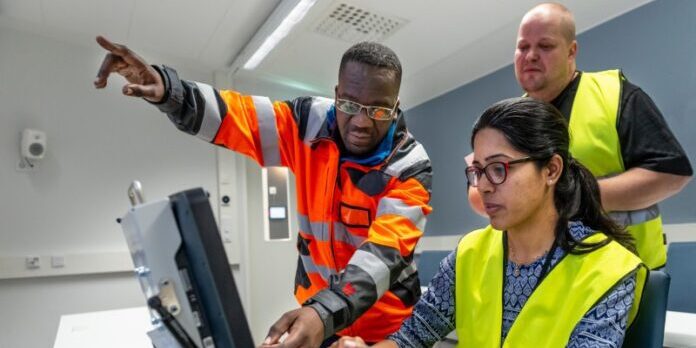Sandvik drives change, innovation in mining with upskilling
Mining is fast embracing various automation and digital technologies, but to keep up with the rapid pace of operational change that this trend demands, everyone must keep learning says Sandvik Mining and Rock Solutions
This is the message from Sandvik Mining and Rock Solutions Human Resources Development (HRD) Manager, Vusi Mnguni who warns that skills development as an enabler is pivotal to effective change management process.
As a result, the company invests heavily in employee and customer development through its training academy at its Khomanani head office.
This is made possible through a variety of specially developed programmes, with most of these conducted in collaboration with tertiary institutions such as the University of Pretoria, Tshwane University of Technology, Colliery Training College, Sandvik Training Academy and other qualified skills development providers.
“Innovation in mining means that more changes are coming, but change is only possible with new competencies,” argues Mnguni. “Unless you have prepared your employees with the requisite skills to drive the change you want, that change process is doomed – as many people will resist what they do not know.”
Citing Sandvik’s purpose being “We make the shift – advancing the world through engineering”, he highlights that this requires the business to identify the skills it needs now – and those it needs in the future. Training in the necessary competencies must begin now, to enable the company to move forward towards meeting its strategic objectives.
“This approach also makes an important broader contribution to the mining sector because tomorrow’s skills need to be in place before we can introduce our latest technologies to the market,” he explains. “The application of technology is really a change management process, which rests on the leadership, technical and organisational capacity of all involved.”
To achieve this, Sandvik Mining and Rock Solutions is engaged in a wide range of training initiatives in technical, managerial and other skills.
Mnguni emphasizes that change is driven by leadership, and skills are developed at this level in terms of adaptability, agility and change management.
“Another key aspect of learning among our staff and in the mining sector generally today is around data,” he explains. “It is increasingly expected that decision-making is data driven, so everyone needs to be literate at the level that they interact with data to understand and analyse the growing volume of data available.”
Mechatronics competency is the way forward and a focal point for Sandvik Mining and Rock Solutions. Indeed, it is already demanded in the current working environment, as the company is a leader in developing intelligent machines for mining.
This means that the traditional artisan skill sets must be taken further, he says. Collaborating with the Tshwane University of Technology, the company upskills millwrights and electricians through a mechatronics programme that deals with the marriage of mechanical, electrical and computer science. This is one of only two institutions in Africa who can offer this specialised course.
“In fact, we have changed our apprenticeship programme to our Millwright Extended Programme which makes Artisan 4.0 a focal point. This includes basic skills in PLC programming and working with autonomous robots/vehicles,” he says.
“This helps to equip the kind of artisan that industry really needs, as it is no longer enough to be specialised in the traditional trades. While regulated apprenticeship modules are generic, the apprentices need additional specialised training to be ready to work on modern mining equipment.”
Various training modalities are appreciated by Sandvik, Virtual, In- Class, Instructor Led , Self-Paced , Nano Learnings , Simulated , On the Job Training , Coaching , Augmented and Virtual Reality.
He adds that it is essential that all role players align their programmes with the technology trends. This is what Sandvik Academy does, not only as a pipeline for its own skills but also for customers that request it.
Such is the legacy of skills development at the company, that it has trained more than 1,000 apprentices over the past 22 years – at a 100% absorption rate into employment.
“These people are gold to the industry and have been taken up not only in South Africa but in countries like Zambia, Tanzania and Zimbabwe, as well as abroad,” Mnguni concludes.
SOURCE:miningreview.com
![]()





